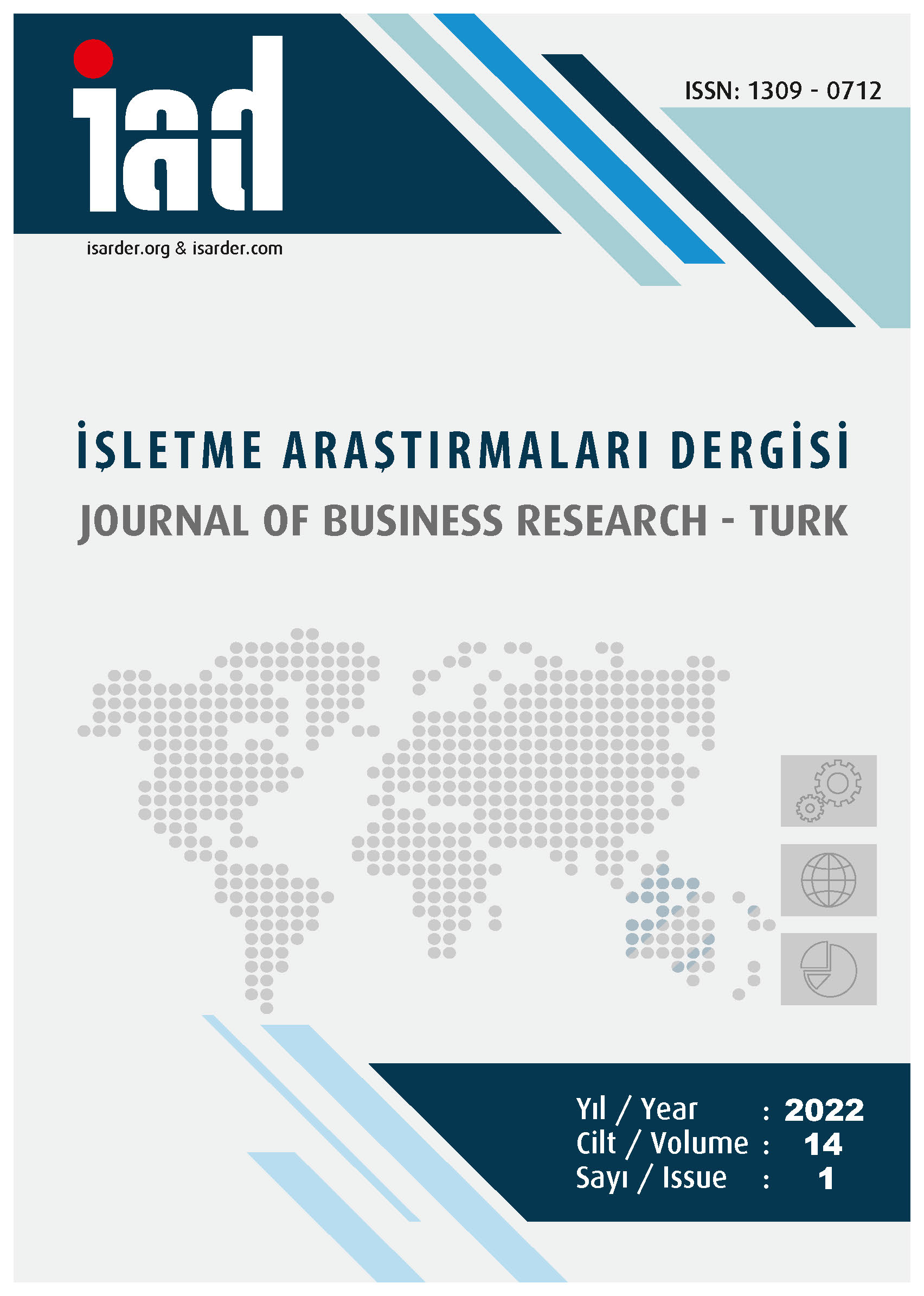Akademisyenlerin Çalışma Ortamında Karşılaştıkları Psikososyal Tehlikeler: Bir Ölçek Geliştirme Çalışması
DOI:
https://doi.org/10.20491/isarder.2022.1373Anahtar Kelimeler:
Psikososyal tehlikeler- Ölçek geliştirme- Akademisyen Çalışma ortamıÖzet
Amaç – Bu çalışmanın amacı, akademisyenlerin karşılaştıkları psikososyal tehlikelerin belirlenebilmesi için geçerli ve güvenilir bir psikososyal tehlike belirleme ölçeği geliştirmektir. Yöntem – Nicel araştırma yönteminin dayanak alındığı bu araştırma tarama (survey) yöntemi ile yürütülmüştür. Veriler Türkiye'deki üniversitelerde görev yapan 865 akademisyenden toplanmıştır. Açımlayıcı Faktör analizi ve Doğrulayıcı faktör analizi uygulanabilmesi için 865 katılımcı içeren örneklem, rastgele iki eşit kitleye ayrılarak AFA ve DFA grupları oluşturulmuştur. Ölçeğin güvenilirlik ölçütü için Cronbach’s alpha ve Birleşik güvenilirlik değerleri hesaplanırken, geçerlilik için ise yakınsama ve ayrışma geçerliliği değerleri hesaplanmıştır. Bulgular – Çeşitli tekniklerin işe koşularak gerçekleştirildiği açımlayıcı analiz sonucunda, ölçeğin 39 madde ve 7 alt boyuttan oluştuğu ortaya çıkmıştır. Alan yazın dikkate alınarak isimlendirilen boyutlar; iş yükü ve iş temposu, kurum kültürü, işin içeriği, iş ve iş dışı yaşam etkileşimi, tükenmişlik, sağlık ve iş programları boyutları olarak belirtilmiştir. Ölçeğin toplam varyansı %65,039 olarak bulunmuştur. Psikososyal Tehlike Belirleme Ölçeği (PST) alt boyutlarının Cronbach’s alpha sonuçları (α>0,8) elde edildiğinden “yüksek güvenilirlik” düzeyindedir. Sadece sağlık boyutunda (,761) “oldukça güvenilir” düzeydedir. Composite reliability değerlerinde ise tüm boyutlar için hesaplanan katsayı (CR>0.70) olduğundan birleşik güvenilirlik şartının sağlandığı ifade edilebilir. Ölçeğin geçerliliği kapsamında uygulanan doğrulayıcı faktör analizi sonucunda 7 faktörlü yapının doğrulandığı ve ölçeğin psikososyal tehlikeleri belirlemede kullanılabileceği sonucuna varılmıştır. Tartışma – Çalışma hayatında son yıllarda meydana gelen gelişmeler ve değişiklikler psikososyal boyutta sağlık konusuna ilginin artmasına sebep olmuştur. Özellikle çalışma şekillerinde yaşanan zorunlu değişiklikler çalışanların psikososyal yönden olumsuz etkilenmelerine sebep olmaktadır. Bu olumsuz etkilerin ortaya çıkmasına sebep olan psikososyal tehlikelerin belirlenmesi ve tespit edilen riskleri minimize etmek için önlemlerin alınması çalışan sağlığı açısından önemli görülmektedir.
İndir
Yayınlanmış
Nasıl Atıf Yapılır
Sayı
Bölüm
Lisans

Bu çalışma Creative Commons Attribution-NoDerivatives 4.0 International License ile lisanslanmıştır.





